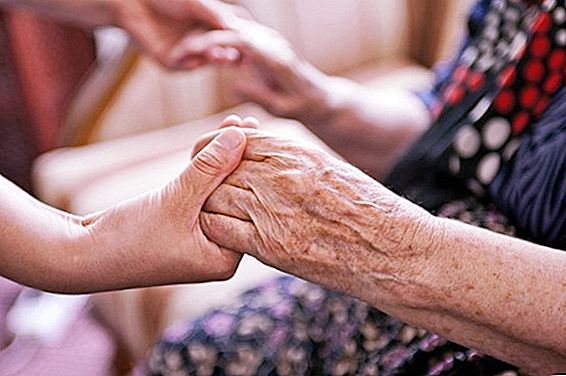Empathy is the ability to feel the problems of other people, as your own. This quality is also called empathy. For some, it is stronger, for others weaker, but its complete absence is not typical for people. Most of human interaction is built on empathy.

Instruction manual
one
A very common reason for the lack of sympathy is not the inability to feel it, but the reluctance to look at others. Psychologists always note that couples who have serious problems do not sympathize with each other. In this case, the partner is often perceived from a selfish position. Each partner wants the other to pay attention to him first, to do what is "necessary." But the one who first pays attention will always win. Of course, attention must be genuine and disinterested, and not in the expectation of a response.
2
Empathy is an understanding of what the other person is missing. Sometimes it’s enough to take a closer look at others to understand what they need. This allows you to deeply realize the needs of others, to soften any relationship. Especially those who receive it least need sympathy: children and the elderly. Empathy is the basis for building deep and trusting relationships with both the child and elderly parents.
3
Symptoms are often a fear of pain or selfishness. Try to handle it. If you feel that someone around you who is dependent on you needs help, you will have to provide it, even forgetting about your own goals, which previously seemed to be priorities. For example, if you are a business person, then having sympathized with your wife who is waiting for you from work in the evenings, you will try to come home early, although before this a similar requirement seemed absurd.
4
Sometimes a person is accused of lack of sympathy not because he really does not understand others, but because he does not express his feelings. You may worry about someone, but if you don’t talk about it, some people will sometimes find you heartless. Especially often this is experienced by people who are not used to talking about their feelings. Try to be more open with loved ones. If you feel something - tell about it, such a policy will allow you to build trust and get rid of accusations that you do not know how to sympathize.
5
It's hard to empathize with what you don’t understand. For example, some young and inexperienced people have great difficulty sympathizing with the elderly. No wonder they say that "a well-fed hungry one does not understand." If you encounter someone’s life experience that is very far from yours, try to put yourself in the place of this person. Do not judge harshly, even if someone made a seemingly unforgivable mistake to you. In general, it’s better not to blame anyone. You do not know what you would do yourself if you find yourself in a similar situation. When it’s harder for someone than you, and you understand this difference, you feel the pain of that person — this is called empathy.
6
Empathy is not only the ability to understand what other people are experiencing. It is also the ability to be attentive, to treat others with tact and courtesy. Try to help people. Create the habit of doing a good deed, for example, once a week. The feelings that will take possession of you when you help someone will help you not only learn how to sympathize, but also become a kinder and more merciful person.
